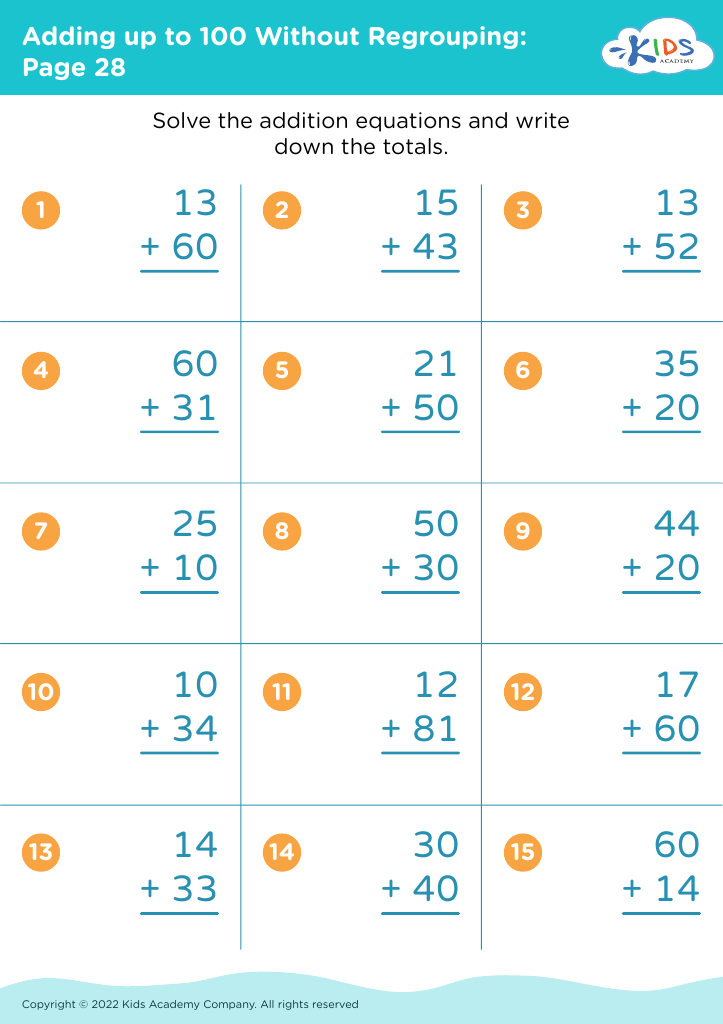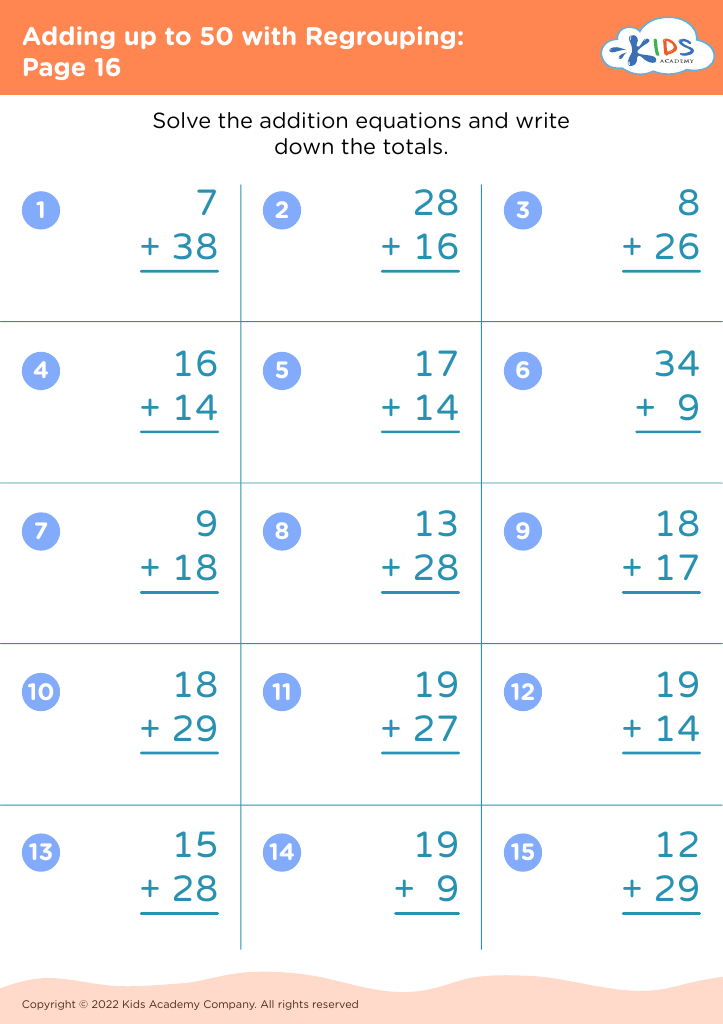Critical thinking development Addition & Subtraction Worksheets for Ages 5-8
3 filtered results
-
From - To
Enhance your child's mathematical skills with our Critical Thinking Development Addition & Subtraction Worksheets, designed specifically for ages 5-8. These interactive worksheets not only focus on basic arithmetic but also promote critical thinking by encouraging young learners to solve problems creatively and logically. Each worksheet offers engaging activities that challenge children to apply their knowledge in real-life scenarios, fostering a deeper understanding of addition and subtraction. With a variety of exercises, your child will develop essential cognitive skills while building confidence in math. Perfect for at-home learning or classroom use, these worksheets make math both fun and educational!
Parents and teachers should prioritize the development of critical thinking skills in addition and subtraction for children ages 5-8 because these foundational concepts are essential for broader problem-solving abilities. At this stage, children begin to grasp not just the "how" but also the "why" of mathematics. Encouraging critical thinking in these early years helps them understand the relationships between numbers and operations, enhancing their ability to apply mathematical reasoning to real-life situations.
When children learn to think critically about addition and subtraction, they can devise strategies to tackle problems creatively, rather than relying solely on memorization. This approach fosters a deeper engagement with the material, promoting perseverance and adaptability as they encounter increasingly complex mathematical scenarios.
Furthermore, developing critical thinking skills early supports cognitive growth, as children learn to analyze, evaluate, and synthesize information. These skills extend beyond mathematics, influencing overall academic performance and life skills. In a world where problem-solving and innovation are highly valued, nurturing critical thinkers prepares children for future challenges. Ultimately, fostering a robust understanding of addition and subtraction in a critical thinking context lays the groundwork for lifelong learning and success in various fields.




















